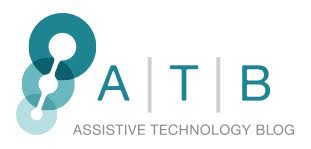Google.org’s $20 Million Grants Are Funding Some Really Awesome Assistive Technologies
Google’s philanthropic arm, Google.org has awarded $20 million in grants to 29 organizations around the world through “Google Impact Challenge: Disabilities” – a mechanism to encourage forward thinking innovators to bridge gaps, and make assistive technologies available to a bigger audience. There are 1 billion disabled people around the world – that’s 1 person in 7 who is disabled.
The grantees are all over the world, and their solutions fall under the “Hearing”, “Mobility”, “Cognitive”, “Vision”, and “Communication” categories. Google.org’s website has a list of all the grantees and descriptions of their solutions. You are encouraged to read about all of the cool innovations but here are a few, just to give you a taste of what kind of assistive technologies are being funded by these grants.
Smart Glasses by the Royal Institute for Blind People: The RNIB is developing smart glasses for people with low vision that identify objects, obstacles and people in their surroundings and turn them into high contrast shapes that can be easily recognized.
Wheelmap: Around the world, there is no easy way of finding accessible points of interest. Wheelmap is creating a global dataset and technology consisting of more than a million points of public places in a consistent format that will be used by several websites and apps meant for people with disabilities.
The Arc: There are more than 20 million people in the US who have cognitive disabilities. Apps and assistive technologies meant for people with cognitive disabilities is on the rise, however, there is no easy way to find the right tool for a person’s unique needs. The Arc is building a web platform that will look at a user’s profile information, match it with others in the system, and identify tools and technologies that will most likely help the person with cognitive disabilities succeed.
Center for Discovery: Power wheelchairs provide a lot of independence to people with limited mobility. However, they can be quite expensive. Center for Discovery is creating an open source add on that will attach to a manual wheelchair and convert it into a power wheelchair for 1/7th the average cost.
DAISY Consortium: DAISY is developing industry standards and working with publishers to ensure that all books published are also available in accessible formats.
Neil Square Society: For anyone who cannot use their arms, it becomes difficult to operate apps and services on a touchscreen device and get desired outcome. Neil Square Society is building an affordable open sourced mouth operated input controller that will let people with limited arm movements to interact with their touchscreen devices.
Leprosy Mission Trust India: The Leprosy Mission Trust India will be 3D Scanning and printing high fidelity, cost competitive, custom footwear at a centralized facility to give people with leprosy the ability to walk. The current system for providing such footwear is inefficient, inaccurate, and has low compliance.
Dan Marino Foundation: The Dan Marino Foundation is creating a solution that will use interactive digital avatars and help people with Autism prepare for interviews. This solution will provide repeated feedback on body language, movement, voice intonation, and eye contact and prepare the user for successful interviews.
Be sure to check out the rest of the grantee’s here!
Source: Google.org via Engadget


Leave a comment